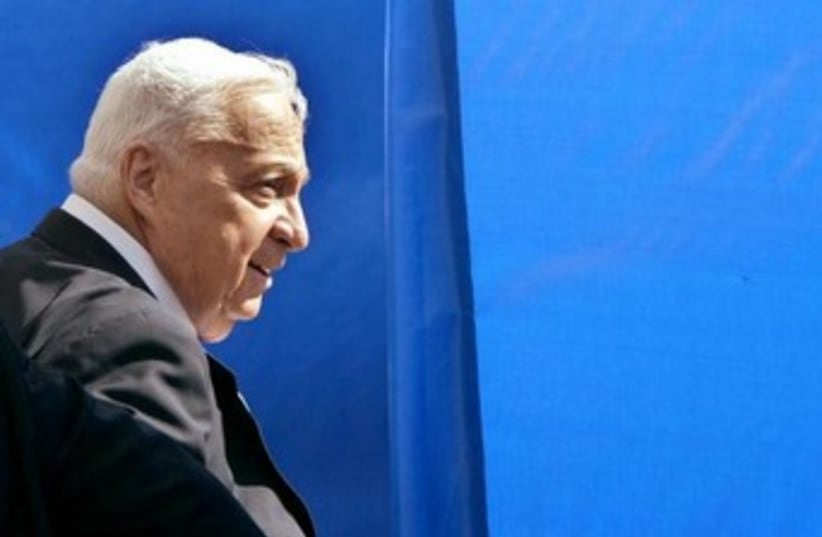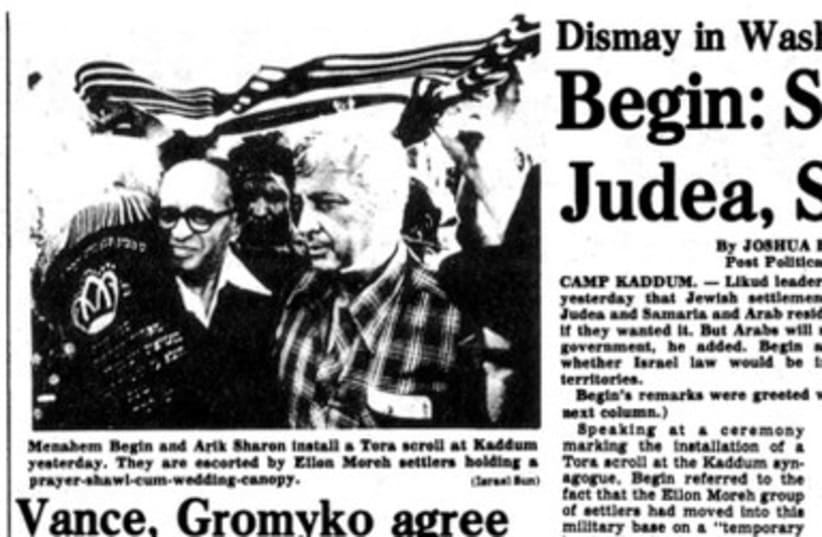
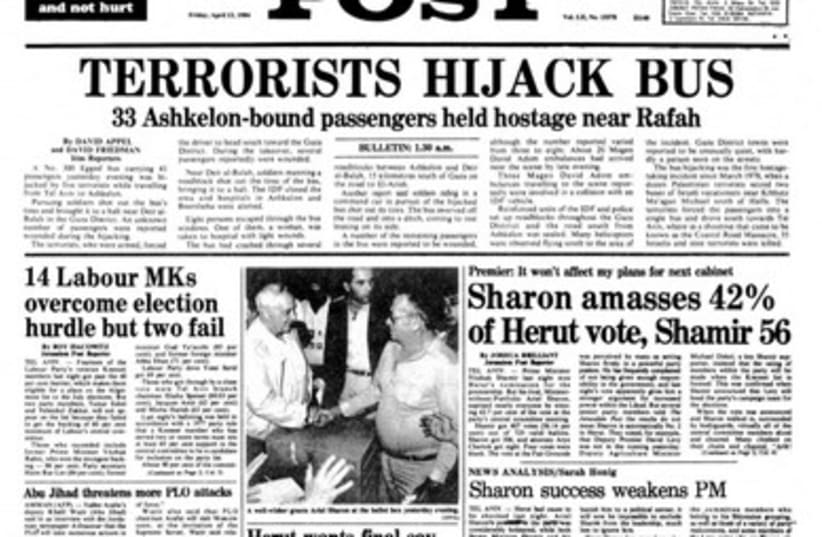
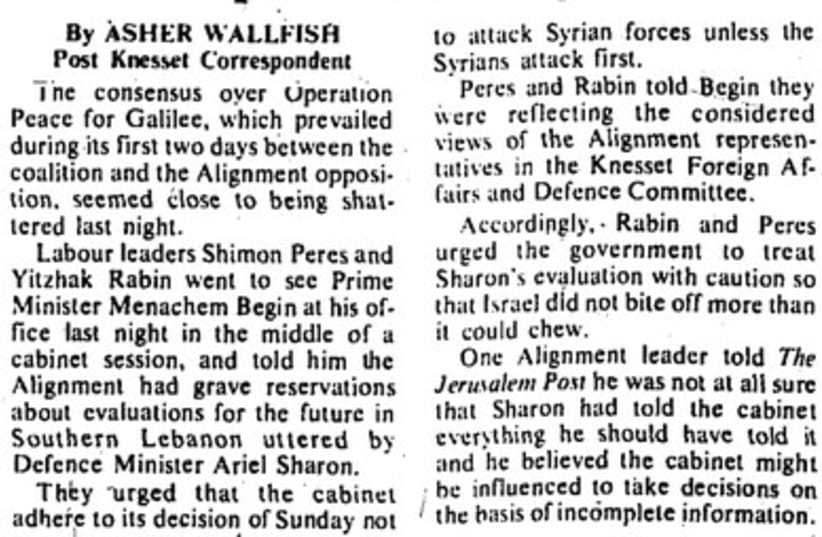
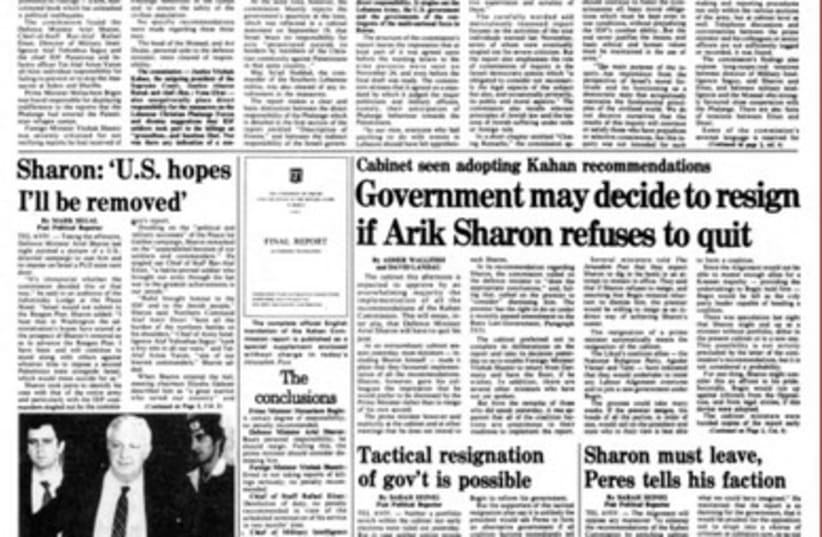
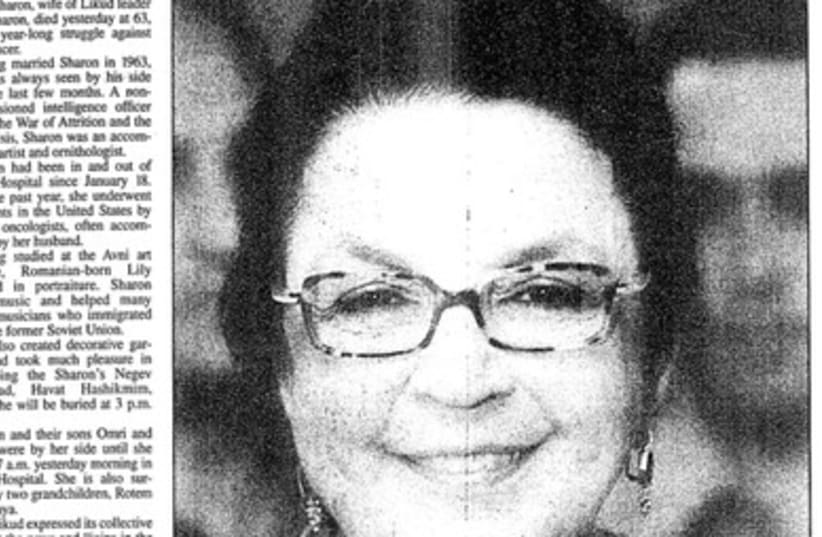
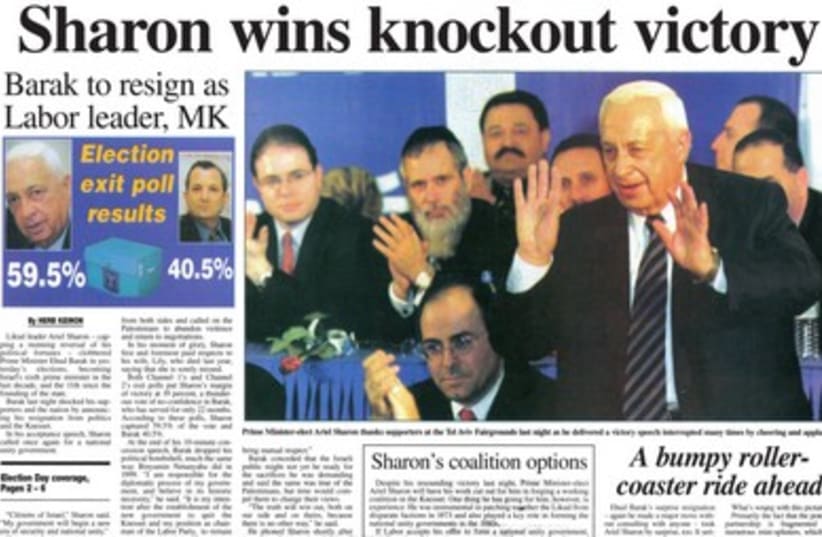
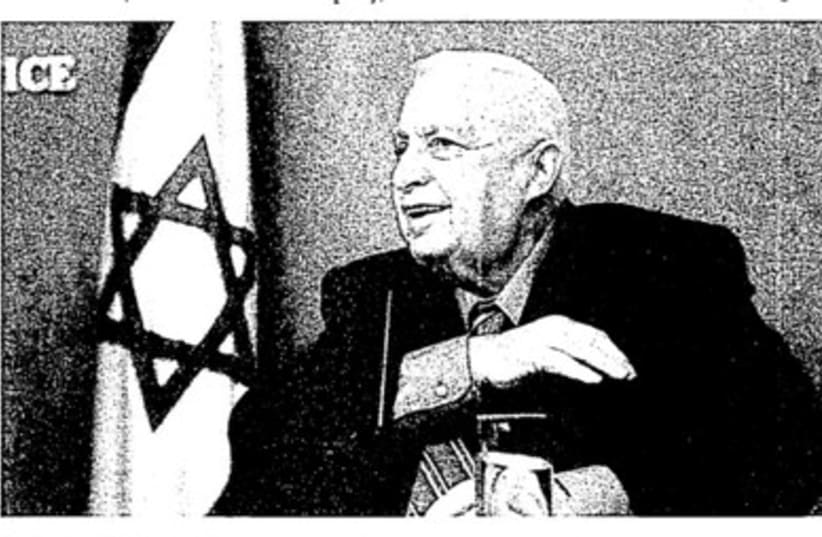
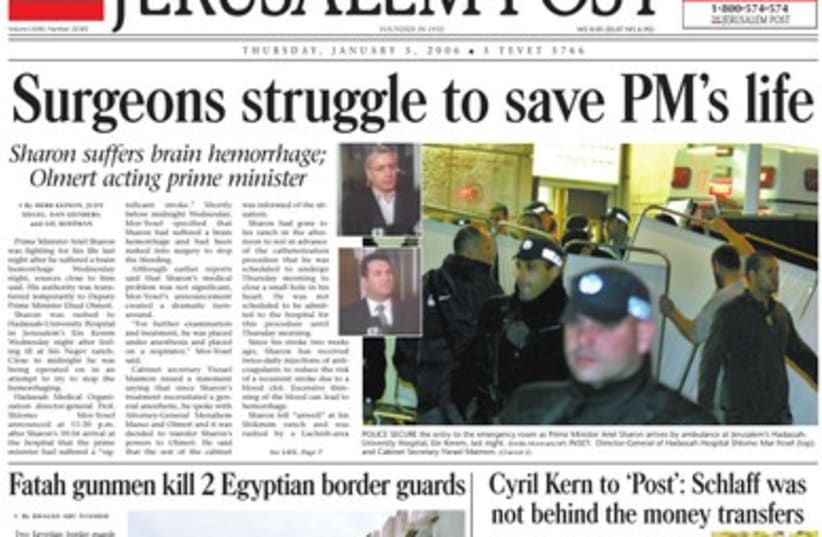

I first covered Sharon in 1990, at the height of the massive immigration from the former Soviet Union. I was a young reporter covering immigration and absorption and he was the housing minister and head of the aliya cabinet, a forum set up to speedily build homes and create jobs for the tidal wave of immigrants.He would hold meetings of the aliya cabinet at the Prime Minister’s Office, and from time to time stroll out afterward to answer reporters’ questions. The best I could do was shout a question in his direction.He cut an extremely intimidating figure: Sharon, the rough, tough, no-holds-barred general of military legend.Sharon, the head of the fabled Paratroopers Unit 101; Sharon, the hero of the Yom Kippur War; Sharon of Sabra and Shatilla; Sharon the bulldozer.It was not until some 10 years later, in April 2001, shortly after he finally became prime minister, that I had my first extended personal encounter with him. It was the night of Remembrance Day, and Jeff Barak, The Jerusalem Post editor in chief at the time, and I were granted an interview that was to appear in the next day’s paper for Independence Day.This was about a year after Sharon lost his wife, Lily. We thought that we were going to have a 30-minute interview, but Sharon spoke to us for more than two hours. He seemed genuinely lonely then, in no rush to go anywhere. It was Remembrance Day, so he had no government business, and he had no one to rush home to. He seemed to want our company. At that moment the man’s fragility hit me, as well as the extent to which Sharon the man was so different from what I expected and anticipated.The fearsome general made sure his guests had something to drink; the cunning politician made a point of saying “thank you” to his tea-lady; the intimidating leader pleaded with his security man to take a seat. (“They haven’t done anything bad yet,” he said of his guests to his bodyguard, who adamantly refused to sit down. “But then again, they haven’t written anything yet.”) Sharon was warm, funny, clever. He was downright avuncular, so different from what I imagined.The next interview I conducted with him, along with my colleague Avi Hoffman, was on September 14, 2001. It was three days after 9/11, and it took place at Sycamore Ranch, Sharon’s beloved homestead some three kilometers from the Gaza Strip.He sat in his living room comfortably, resting his foot on a footstool, as a German Shepherd wandered into the room looking for his affection.This time too, he was not rushed, but set aside a good amount of time for the interview.My take-away from that interview was the degree to which, for Sharon, the present was a seamless continuation of the past. He was present at the state’s creation, took part in its battle for Independence, and played a role at so many key junctures in the state’s history since then. His decisions about the present, therefore, were shot-through with recollections of similar circumstances in the past.For example, the War of Independence for Sharon was not history, but a wellspring of experiences from which he continued to draw, even when sitting in the Prime Minister’s Office. Asked why he did not address the nation more frequently, Sharon recalled an experience in 1948 when he didn’t address troops under his command as they had wanted.Asked – in light of 9/11 and the attack on the Twin Towers – about Israel’s preparedness to deal with hijacked planes exploding into its own cities, Sharon recalled a discussion in the General Staff in the 1970s when it appeared that a hijacked plane was intent on blowing itself up over Israeli airspace. The decision at that time was to blow the plane up if need be.The setting hammered home how Sharon the man was so different from Sharon the public personality.Classical music played from a stereo’s speakers when we entered the home, guinea fowl, peacocks and lambs rambled outside. His couch was adorned with a pillow that read, in English, “What a mensch.”The last of the seven interviews I had with him was on August 21, 2005, just days after the withdrawal from Gaza, even as bulldozers were mowing down the settlements there. This was a oneon- one interview in his office.The ground rules were that I could quote him, but could not write that the quotes came during an interview – he did not want to antagonize reporters from the Hebrew media by giving an exclusive interview at that time to the Post.During that interview, Sharon vowed that there would be no second disengagement.He also vowed to build in the settlement blocks: “Ma’aleh Adumim will continue to grow and be connected to Jerusalem,” and “the Ariel bloc will remain a part of Israel forever, connected territorially to Israel.”Sharon seemed drained during this interview, tired.Surprisingly, he had to ask aides about whether the famous letter from George W. Bush – the letter Israel interpreted as US support for holding on to the large settlement blocs, and something he waved as a major accomplishment of the disengagement from Gaza – had any legal standing (it did not).Sharon also referred during this interview, though not by name, to his political rival at the time, Binyamin Netanyahu.“You can’t frighten these people [Israelis] with the threat of terror all the time, you can’t continue to scare them that there will be rocket attacks on Ashdod and Kiryat Gat,” he said. “You can’t scare this nation. We will not allow attacks and we will respond to attacks as forcefully as possible.”He said something else during that interview that lingered with me afterward and now seems to go a long way toward summing up the man and his legacy: “We had a dream. Parts of it were realized, others were not.”
